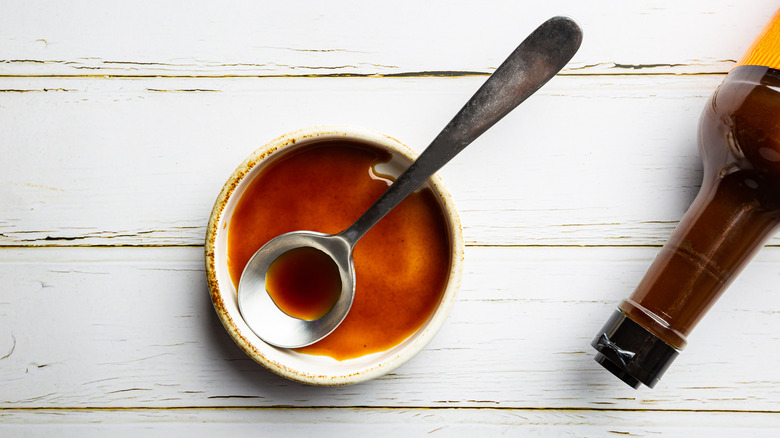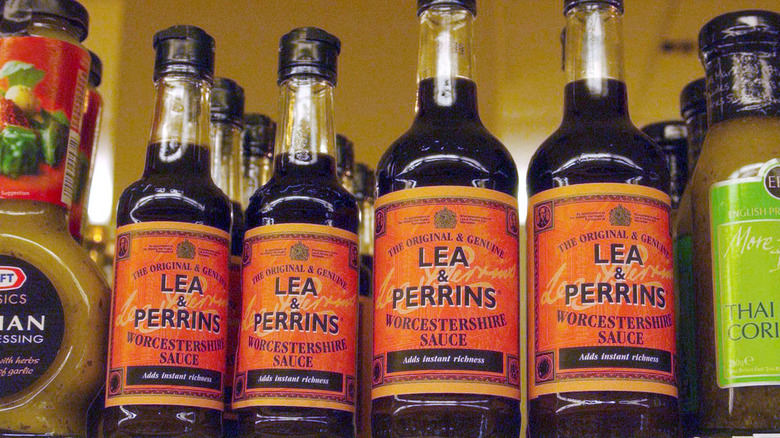Why Worcestershire Sauce Is Not Suited For Many Diets
Worcestershire sauce was invented during the mid-19th century in Worcester, England by chemists John Wheeley Lea and William Perrins to add a little flavor to bland food, according to the BBC. Many kitchens around the world have the sauce tucked away in their pantry or refrigerator, waiting to be dashed into some family recipe or flavorful dish.
The difficult-to-pronounce sauce is a dark liquid with a pungent umami flavor. Trying it by itself can stop you in your tracks as it's quite potent, but when mixed into dishes, the sauce is an invaluable ingredient. Kitchen Stories claims that Worcestershire is essential to heightening things like Caesar salad dressing, meat-based dishes like classic meatloaf, meat pies, fish, marinating sauces, and egg dishes like shakshuka and deviled eggs. Worcestershire is even used in some mac and cheese recipes and Bloody Mary cocktails, but just because Worcestershire sauce is used in everything doesn't mean that everyone can eat it. This iconic sauce is definitely not for everyone, and we'll cover how this ingredient doesn't work within certain dietary restrictions.
Before you pour...
Before you go out and buy a bottle of Worcestershire sauce to dress up your recipes, you should know a few things. According to Delishably, Worcestershire sauce, while there are several variations and dozens of brands with specific recipes, is usually made from fermented anchovies, tamarind paste, molasses, onions, garlic, spices (determined by the maker), and vinegar — all of which then gets stored in wooden casks for eighteen months. Bon Appétit says that this peculiar blend of ingredients gives the sauce a deep flavor that's used much like soy or fish sauce.
However, if you are vegan or vegetarian, you probably already noticed that anchovies, the small cured fish are on the list of ingredients. Luckily, there are some vegan and vegetarian Worcestershire sauce brands you can buy from, but generally speaking, the sauce is off-limits for non-meat eaters or those with fish allergies. Ditto for folks that eat Kosher. According to the Kosher Channel, Kosher law forbids mixing fish (which is in the sauce) and other meats (which the sauce usually dresses). While it's feasible to eat Worcestershire sauce and stay Kosher, the site recommends simply going with a vegan alternative.
And last but not least in our ingredient-wary roundup are those who eat gluten-free. Many Worcestershire sauces use barley malt vinegar in their recipes, which means that if you're sensitive or intolerant of gluten, you should only buy bottles labeled gluten-free (via Beyond Celiac).

